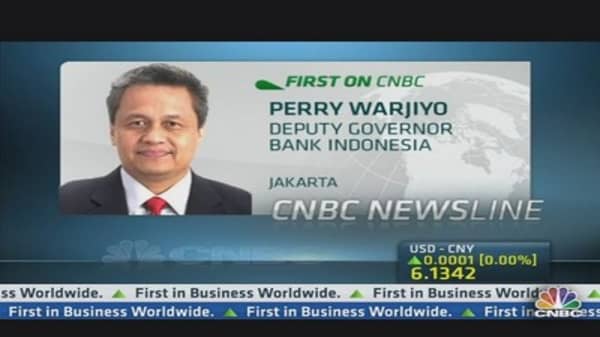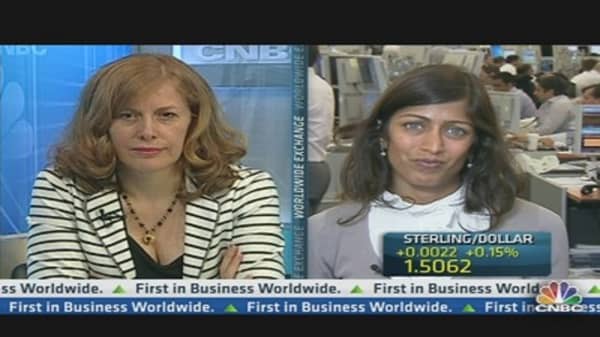A surprise interest rate hike from Indonesia came amid one of the worst weeks for emerging markets as heavy capital outflows pounded their equities and currencies. Now analysts anticipate governments to take further action to stem the tide.
On Thursday investors were taken aback by a 25 basis point interest rate increase from Indonesia, the first hike by an Asian central bank since 2011, following several rate cuts in recent times.
(Read More: The Race to Cut Rates: Look What Japan Started)
"We will probably see stronger policy moves. I think the central bank of Indonesia will seriously consider a 50 basis point hike for the main policy rate," said Vishnu Varathan, market economist at Mizuho Corporate Bank in Singapore. "Some degree of capital controls cannot be ruled out at this point," he added.
The U.S. Federal Reserve's $85 billion per month bond buying program has fed a steady stream of cash into emerging markets in recent years. But speculation over the potential tapering of the program, which has intensified in recent months, has led to a spike in risk aversion and heavy outflows from emerging markets in recent times.
Stock markets in Thailand, the Philippines and Indonesia have erased considerable gains made this year, while the Nikkei has fallen 20 percent in the past few weeks alone.
(Read More: Look! Hot Money Is Fast Exiting Emerging Stocks)
Central banks from India, Brazil, Indonesia and Turkey all intervened in the currency markets this week to shore up their battered currencies, which fell victim to exiting foreign funds. For example, the Indian rupee hit a record low of 58.98 against the U.S. dollar on Tuesday before the Reserve Bank of India intervened.
(Read More: Where Has the Talk of Currency Wars Gone?)






